What Is It? and Why?
The Daily D is a daily dose of helpful information.The Daily D stands for Daily Direction, Decision, Dose of Wisdom, Dose of Special Sauce, (others??). These are suggestions and strategies from experts on topics ranging from the Growth Mindset, brain-based learning, caring for one’s self, and student skills, to caring for others.
The Goal of the Daily D is to help students learn how to be successful* and to help those around them to be successful. (*even in a pandemic)
Daily D #33 Final Exam Recommendations
Recommendations for Taking a Math Exam
The following suggestions will improve your performance on the exam and your score on the exam.
- Remember the purpose of an exam is for you to show your knowledge. Therefore, have your paper reflect that you have knowledge (even if you don’t know everything).
- Try not to leave a question blank. Avoid the self-talk of, “I have no clue.” Try to get started or do something. Even showing that you understand parts of the problem is better than nothing. Also, if you know the units on the answer write down, for example, ____ square feet. This shows some knowledge.
- Erase things that you know are incorrect. Leaving bogus things on your paper does not reflect well on you knowledge. (If you mess up the paper real bad, ask if you can write on a separate sheet.)
- Label everything.
- If you are using a variable for a word problem. Write down (use words) for what the variable stands for. (For example, x = height of the flag pole, in meters.)
- The axes on a graph. For example, x and y, in algebra, or year and GDP of the US, in statistics.
- Put units on your answer. (For example, length = 2.65 m.)
- Show your work. Show the steps. If you make a mistake (and you might), but it is clear you understood the overall process, you’ll get partial credit.
- Practice using good problem solving: 1. Understand* the problem; 2. Select a strategy; 3. Solve (do it); 4. Look back and extend. *If you do not fully understand the problem (it may be vague), ask the professor a question about the question.
- Take a ruler (or other form of a straightedge, such as a Student ID), so you can draw straight lines. For example, on a graph.
- You may not have time to do a lot on Look back and extend, but at least check to see if you, in fact, you answered the question that was asked and that your answer is reasonable. Answering the wrong question or giving an unreasonable answer does not reflect well on your knowledge.
- Use your time wisely. Don’t spend too much time on one question. Work through all the problems, doing those you know how to do first. (On the first pass through it is OK to skip an item.) Then go back and make an attempt at every question.
- Don’t be in a rush to get out (even though that may be a temptation). Effort goes a long way in all aspects of life. This applies to all the other items in this list. Turning in a paper early with blanks, careless errors, no labels, and your work not shown clearly does not reflect well.
Daily D #32 Manage Your Stress Week at WIU
Fun activities this week in Macomb include: Star Wars Bingo and UUB BQ Block Party on (yep) May the 4th (Wednesday).
QC Activities: WIU to Host Manage Your Stress Week, May 2-5, 2022.
Get involved, have fun, and de-stress.
Daily D #31 Love of Learning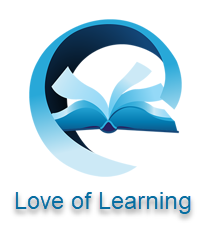
The joy of life-long learning is a wonderful thing.
Love of learning means a passion for learning, a desire to learn just for learning’s sake.
It is considered one of 24 important virtues here.
Commitment to Learning is the second of 4 Teacher Candidate Dispositions here at WIU.
Daily D #30 Self-Talk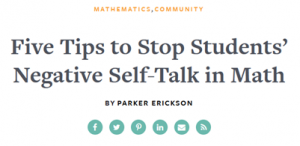
Self talk is important. (See also Day #5 below.) We need to encourage our students and ourselves to use positive self talk.
Here are Five Tips to Stop Students’ Negative Self-Talk in Math.
- Embrace Productive Struggle
- Solve Problems Together
- Use Asset-Based Language
- Use Peer Models
- Celebrate the Wins
Daily D #29 Last 4 Brain Rules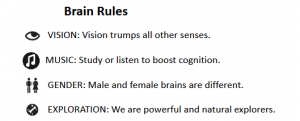
This website describes 12 brain rules. There are short videos for teach ‘rule.’
Daily D #28 Second 4 Brain Rules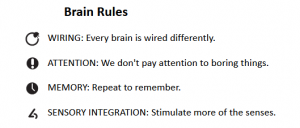
This website describes 12 brain rules. There are short videos for teach ‘rule.’
Daily D #27 First 4 Brain Rules
This website describes 12 brain rules. There are short videos for teach ‘rule.’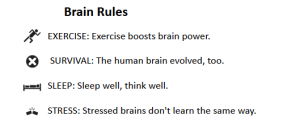
Daily D #26 More Ways to Ease Stress
- Assert yourself. It’s okay to say “No” to demands on your time and energy that will place too much stress on you.
- You don’t have always have to meet the expectations of others.
- Sell yourself to yourself. When you’re feeling overwhelmed, remind yourself of what you do well. Have a healthy sense of self-esteem. Celebrate past successes.
Daily D #25 Offensive and Easing Strategies to Reduce Stress
Link ~ ~ April is Stress Awareness Month
- Be assertive instead of aggressive. Assert your feelings, opinions, or beliefs instead of becoming angry, defensive, or passive.
- Accept that there are events that you cannot control. (Serenity Prayer)
- Reduce triggers of stress. You can free up time by practicing time-management skills like asking for help when it’s appropriate, setting priorities, pacing yourself, and reserving time to take care of yourself.
Daily D #24 Four Proactive/Offensive Strategies to Reduce Stress
- Healthy lifestyle/choices: Eat and drink to optimize your health; Exercise regularly.
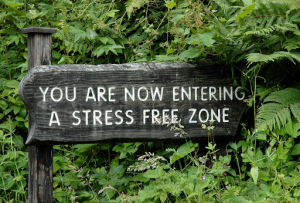
- Study relaxation techniques, such as deep breathing, yoga, meditation, tai chi, exercise, and prayer.
- Learn Skills ▶️time management; ▶️problem-solving; ▶️prioritizing tasks.
- Enhancing your ability to cope with adversity. For example, you may learn how to improve your emotional awareness and reactions, increase your sense of control, find greater meaning and purpose in life, and cultivate gratitude and optimism.
Daily D #23 Etymology of Fraction Terms
Daily D #22 The Following are Not Cheating, but Recommended
The following activities can help your understanding and your grade (unless they are abused):
- Compare work and answers to homework with classmates.
- Get past exams from the course from friends, fellow sorority/fraternity members, upper-classmen, etc.
- Check your answers in the ‘back of the book.’
Do:
- Work the problem out before looking at the answers in the book.
- Show the work that leads to the solution on you paper (not just the answer).
- Know how to get the answer.
Daily D #21 How to Study for a Math Test in 10 Easy Steps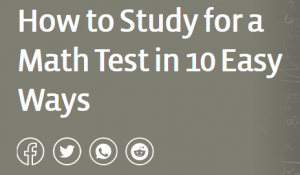
This article lists, and briefly describes 10 useful tips for studying for a math exam.
Included are >Starting Early; >Making a Plan; >Using Practice Items; >Flashcards; >Study Groups; >Rewards; >Learning from Mistakes
Daily D #20 4 effective ways you can become more resilient
- Build a strong social network
- Rise to the higher cause
- Control negative thoughts
- Take mental breaks
Daily D #19Three Reminders Why You Should Rest, Not Quit
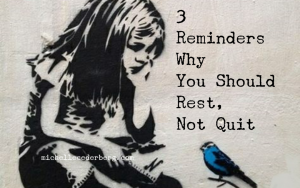 When we’re tired, frustrated, or impatient it’s easier to quit than it is to take a restorative rest. But that’s not how you drive success. Video. Article.
When we’re tired, frustrated, or impatient it’s easier to quit than it is to take a restorative rest. But that’s not how you drive success. Video. Article.
- Reaching worthwhile goals takes time. Rest, don’t quit.
- Our lives are busy.
- To do great work, your body and mind need regular breaks to restore.
Daily D #18 Short-term (working) memory is limited in capacity and duration – 3rd Ramifications
- Calculators can help (so we don’t get side-tracked by a complicated calculation).
- Calculators can hinder/distract from working memory. Mental math calculation can keep the flow going.
- The Question: “Do I have a mental math strategy for this?” is a good one. Answer it in 3 seconds. Yes-do mental math; No-Use a calculator.
Daily D #17 Short-term (working) memory is limited in capacity and duration – 2nd Ramifications
- Distractions hamper working memory, making it difficult to complete HW and learn (make important connections).
- We can not multi-task, due to the limited capacity of the working memory.
- Anxiety hampers ones ability to think. Test anxiety and math anxiety are real and make a difference, because it saps limited short-term memory resources. It is important to use techniques to reduce anxiety.
Daily D #16 Short-term (working) memory is limited in capacity and duration – 1st Ramifications
- Our eyes are very fast and efficient for getting information into working memory. Therefore, have your materials out and spread out (and perhaps use multiple computer screens). Notes, calculator, homework, textbook.This way your eyes and brain can move quickly from one thing to the other. If you are having to continually pull things up, this saps the limited capacity of the the short-term memory.
- Write things down. (a) you often forget, for example, what does x stood for and (b) so that you can follow the process.
Daily D #15 Information Processing Model (how the brain thinks)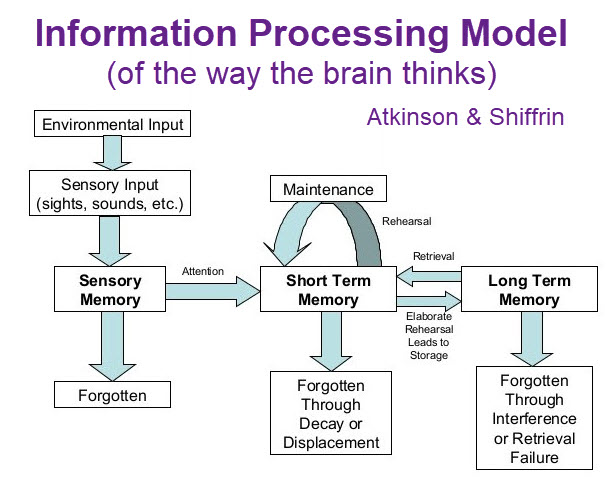
Everything happens in the Short-term memory (sometimes called the working memory).
Short-term memory gets it’s information from the sensory memory and the Long-term memory. The short-term memory is limited in capacity (only can hold 7 ± 2 pieces of information) and limited in duration (“30 seconds” unless maintained).
Long-term memory has an unlimited amount of space and is long-lasting, if the pieces are connected.
Daily D #14 Learning the Basic Facts (in the privacy of your own home)
When it comes to the basic arithmetic facts (for example 9+7 = 16 and (9*7 = 63), speed is not important, but it is important to have an efficient strategy to recall the facts in the addition table and multiplication table.
The key 🔑 is to have strategies that work for you. Just trying to memorize usually doesn’t work.
You may want to learn strategies and practice. Do this in the privacy of your own home. (No one needs to know.)
Resources include:
- Basic Fact Strategy Videos
- Practice Games at Multiplication.com (and you can choose the facts you want to practice)
Daily D #13 Five Ways of Well Being
Daily D #12 The Roots of the Success Tree
The leaves and the fruit of the tree are what is seen and produced.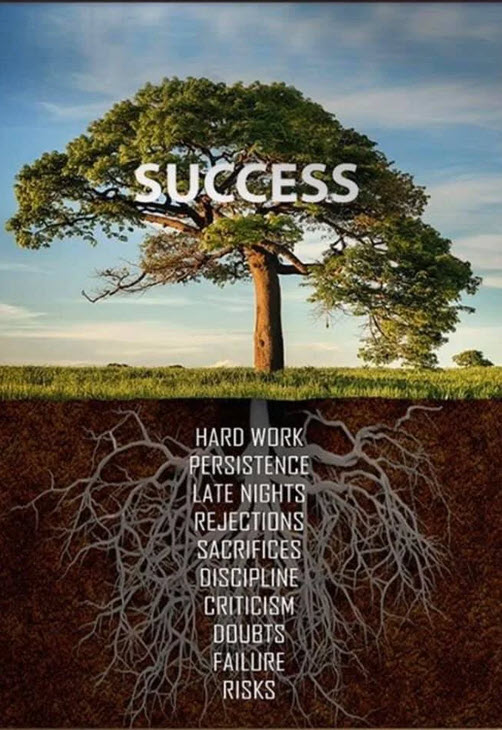
The roots provide much of the needed nourishment, foundation, sustenance, and support for the tree to be able to flourish and produce. The same is true for human success. One must invest in what goes into the roots.
Daily D #11 Thank you for being a teacher education major and for working to become a teacher. Our society and our children need teachers!
Here’s a nice progression by Tanmay Vora on Twitter. This is Why We Are Here.
Curiosity leads you to knowledge.
Application of knowledge leads you to experience.
Reflecting on experiences leads to wisdom (hence better application of wisdom).
Sharing wisdom with others leads to a community.
A community feeds your curiosity.
Daily D #10 “We do not learn from experience. We learn from reflecting on experience.” John Dewey, educational psychologist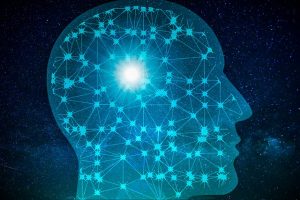
Good understanding (relational understanding) of a concept means the concept has many connections, in the brain, to other concepts. We build this connections by reflecting on what we have learned and done.
Reflective thinking, is a part of critical thinking, referring specifically to the processes of analyzing and making judgments about what has happened. Dewey suggests that reflective thinking is an active, persistent, and careful consideration of a belief or supposed form of knowledge, of the grounds that support that knowledge (WHY?), and the further conclusions to which that knowledge leads. Learners are aware of and control their learning by actively participating in reflective thinking – assessing what they know, what they need to know, and how they bridge that gap.
Daily D #9 The Power Nap: Use This Hack Developed by the Military to Fall Asleep in 2 Minutes
Article here. See also TikTok and Google.
Daily D #8 Be Prepared, It’s not just a motto for the Boy Scouts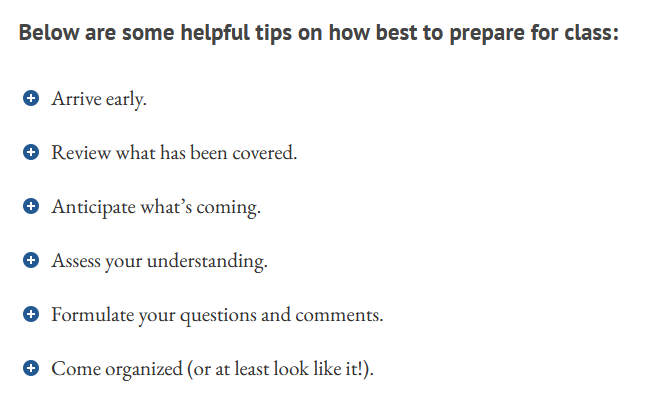
LinkedIn article ~ How to Prepare for Class article
Just like preparing the ground before planting helps growth, preparing to learn improves learning.
A few recommendations for this class:
- Get WesternOnline loaded.
- Get MyMathLab loaded.
- Prepare questions on the most recent homework assigned.*
- Look over the new handouts (anticipate).*
- Look at the objectives for the next SBA Quiz.*
*The same thing is on all 3. Make the connections.
Daily D #7 How to Learn More Effectively with Distributed Practice and Interleaved Practice
Distributed Practice is spacing out study and homework sessions for material to be learned over time. Research has should that distributed practice increases the amount learned and improves retention. (The opposite of distributed practice is cramming.)
Interleaved Practice is mixed practice. You are learning two or more related concepts or skills, instead of focusing exclusively on one concept or skill at a time. Let’s say you want to learn 3 topics, A, B, and C. Instead of studying AAABBBCCC, it it is better to have interleaved practice which is ABCABCABC. Interleaved sounds like, and is somewhat similar to, “interweaved,” but it is an educational term. Interleaved Practice has been shown to improve understanding and retention.
Interleaved and distributed practice flow naturally.
This is why we make assignments numerous days before they are to be turned in and why you should begin work on the assignments right away and space out work on the homework.
More Information:
Prezi: https://prezi.com/lxwdgidz4mks/distributed-and-interleaved-practice/
3 main benefits of interleaving: https://examstudyexpert.com/interleaving/
Article: https://effectiviology.com/interleaving/
Daily D #6 7 Positive Norms to Encourage in Math Class
Click the image to learn more. Click here for details.
Daily D #5 Productive Struggle and the Power of Yet
Productive Struggle and the Power of Yet are part of the Growth Mindset.
Productive struggle is the process of effortful learning that develops grit and creative problem solving. Productive struggle is a state of engagement that enables students to work through increasingly challenging problems and new problems they have never seen before.
Here’s a short video from Jo Boaler on productive struggle.
 Here’s a longer video.
Here’s a longer video.
Sesame Street video: Janelle Monae sings about the Power of Yet.
Self talk is important. Rather than saying, “I can’t do this” or “I’m not good at this,” it is better to say, “I’m working at it, but I don’t have it yet.”
Daily D #4 Introduction to the Growth Mindset
Carol Dweck and Jo Boaler (Stanford University) have done much research on two kinds of mindsets — the fixed mindset and the growth mindset.
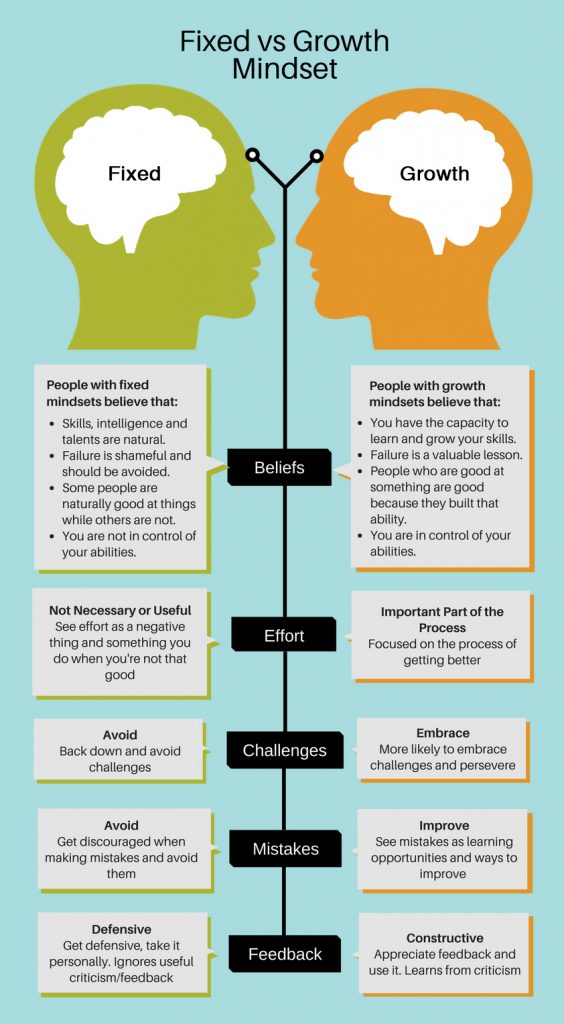 Article here.
Article here.
Their YouCubed website is for K-12 and college students, showing the power of the Growth Mindset.
Daily D #3 Focus on (Strive for) Relational Understanding
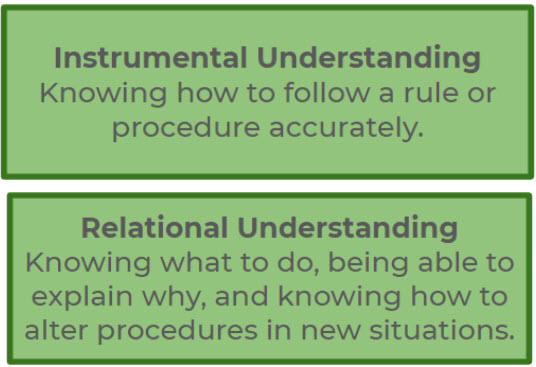 Relational understanding is a well-connected understanding. It has many benefits for students.
Relational understanding is a well-connected understanding. It has many benefits for students.
Students who are taught relationally and learn relationally are more likely to:
- Remember the procedures because they have truly understood why they work,
- Retain their understanding longer,
- Connect new learning with previous learning (therefore, learn new material more easily),
- Less likely to make careless mistakes.
- Feel better about math and school.
The key is connections in the brain. The concept is connected to many other concepts in the brain.
Excellent article here.
“Instrumental understanding lets you rent the information and relational understanding let you own the information.”
Daily D #2 The Twelve Gifts of Birth
Excerpts from a book, The Twelve Gifts of Birth, by Charlene Costanzo.
This is a message for children of all ages and the child in every adult. The 12 gifts of birth remind us to recognize dignity in ourselves and others.
The first gift is Strength.
May you remember to call upon it whenever you need it.
The second gift is Beauty.
May your deeds reflect its depth.
The third gift is Courage.
May you speak in act with confidence and use courage to follow your own path.
The fourth gift is Compassion.
May you be gentle with yourself and others. May you forgive those who hurt you and yourself when you make mistakes.
The fifth gift is Hope.
Through each passage and season, may you trust the goodness of life.
The sixth gift is Joy.
May it keep your heart open and filled with light.
The seventh gift is Talent.
May you discover your own special abilities and contribute them toward a better world.
The eighth gift is Imagination.
May it nourish your visions and dreams.
The ninth gift is Reverence.
May you appreciate the wonder that you are and the miracle of all creation.
The tenth gift is Wisdom.
Guiding your way, wisdom will lead you through knowledge and understanding. May you hear it soft voice.
The eleventh gift is Love.
It will grow each time you give it away.
The twelfth gift is Faith.
May you believe.
Daily D #1
“The truth is,” said the horse, “that no matter how it looks, everyone has their struggles.”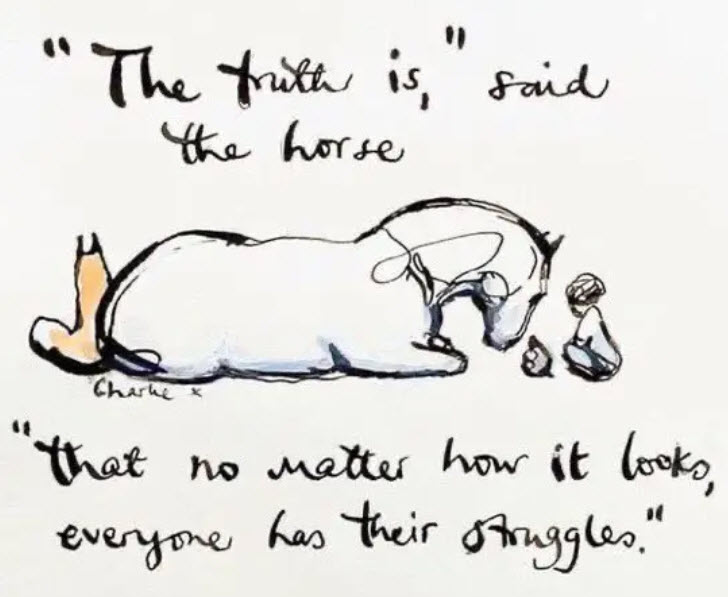
This is from a 2019 book, by Charley Mackesy, titled The Boy, the Mole, the Fox and the Horse. It is a best seller and highly rated.



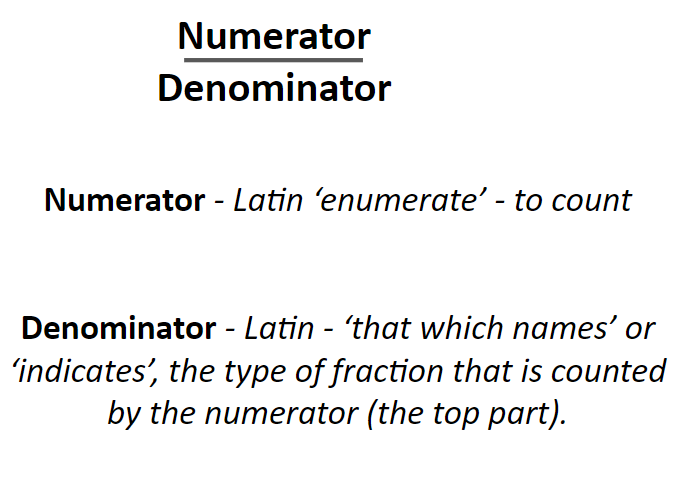
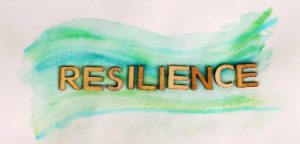
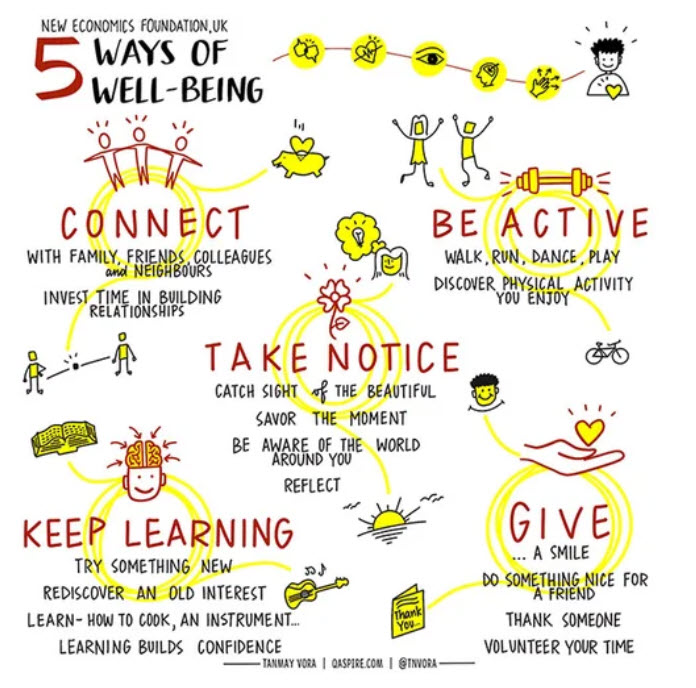

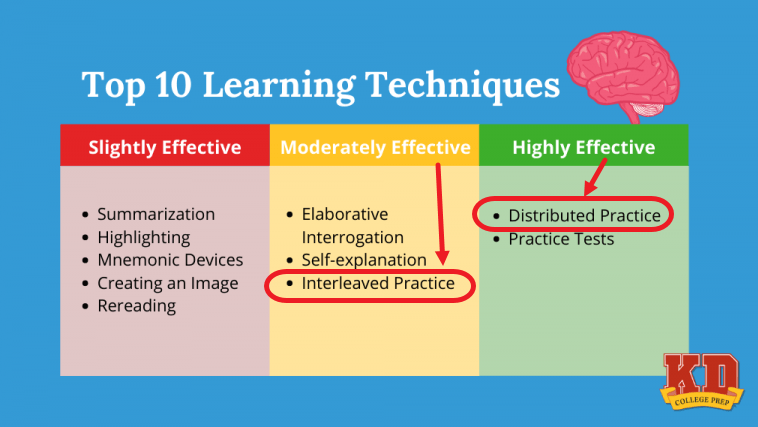
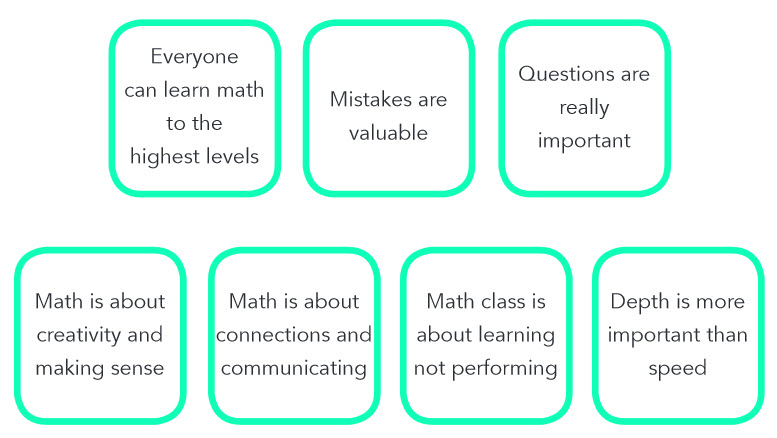
Recent Comments